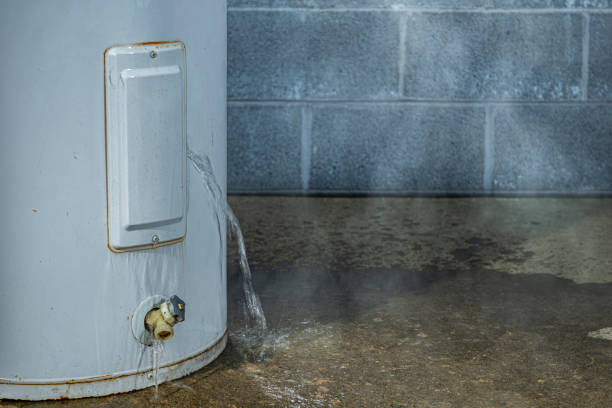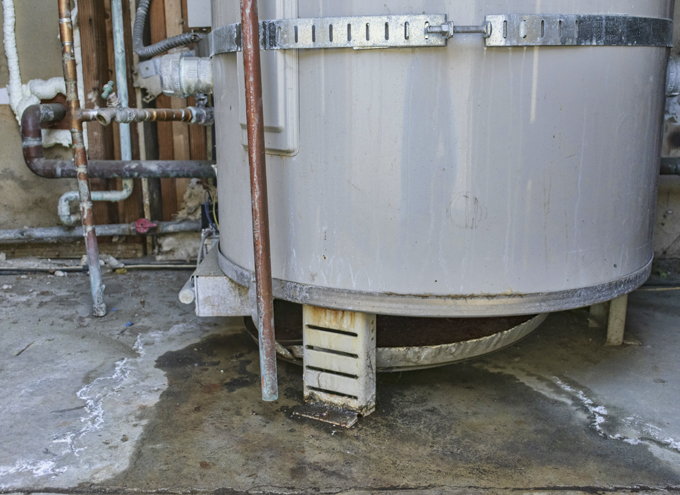Important Advice for House Owners Managing Malfunctioning Water Heaters
Important Advice for House Owners Managing Malfunctioning Water Heaters
Blog Article
We've encountered this great article pertaining to Maintaining & Draining a Water Heater below on the internet and believe it made good sense to write about it with you in this article.

Whether it is located in the cellar or a different area, damaged water heating systems can cause anxiety. Having no hot water supply is additionally frustrating.
Turn Off Power Source
Prior to calling the plumber, shut off a gas water heating unit by transforming the temperature level dial. This will certainly avoid electrocution, especially if there is a leakage as water is a conductor. Usually, the heating element closes off when the water hits a details temperature.
Cut Off the Cold Water Supply
Cut off the containers tap water supply from the resource. This goes from your major water line right into the storage tank. When your container is in good condition, the cold water stops filling up when the storage tank is complete. Yet given that it is dripping, the water will continue to flow. Close the valve located at the top of the heating unit. Rotate this clockwise to shut it off. If you can not discover it or reach it, you have to switch off that major water line outside your residential or commercial property.
Call the Plumber
After doing the first two security steps, you must call your plumber to come right away to deal with a ruptured water heating unit. There are generally indicators that your aging water heater has sediment accumulation in the interior.
Instead, as quickly as you spot these signs, have actually an expert come to evaluate your water heating system say thanks to. Typically, water heating units have a life expectancy of about 8 to 12 years.
Clean Up Home
After calling the plumber, paper damages by taking notes and photos so you can assert your home owner's insurance policy. Get rid of any kind of standing water to protect against mold as well as mildew growth. If you have a completely submersible water pump, utilize that to drain the water.
Bear in mind, if you see any kind of problems with your hot water heater, call the pros immediately. You can not take this problem lightly because a defective thermostat can elevate water temp to a dangerously high degree, leading to unintended burns. A broken heating unit stress relief valve can also cause a surge. For best results, get a yearly check so your device obtains evaluated, cleansed, drained pipes, as well as replenished, ensuring ideal efficiency.
Whether it is located in the cellar or a different space, busted water heaters can cause anxiety. Before calling the plumber, shut off a gas water heating system by turning the temperature level dial. After doing the first 2 security steps, you need to call your plumber to come right away to deal with a fractured water heater. If you have a completely submersible water pump, use that to drain pipes the water. Remember, if you discover any problems with your water heating unit, call the pros right away.
Is My Water Heater Broken?
The Water Heater is Old
No appliance will last forever. This includes a home’s water heater. During its lifespan, residents are going to face a situation where a new water heater installation will be necessary. The biggest problem with this is that most people are not sure when their water heater expires. Not knowing this can lead to serious risks if the unit begins to act up due to old age.
Most makes and models of water heaters will last between eight and 10 years. While 10 years is the age when water heater replacement is highly recommended, the need to replace the unit may occur before this time or after. If the unit doesn’t show any symptoms of a problem, it is a good idea to replace it at the 10-year mark (from the manufacture date).
Some of the symptoms that indicate a new unit is needed include rusting, leaks, noises, and a failure to heat up the water. Also, note that not all units have a 10-year life expectancy. The main exception to this rule is that a gas unit will last for six to eight years.
Rusty Heater Inlet Valve or Water
While steel is the strongest material on earth, it does have a weakness – rust. If corrosion occurs on a steel surface, it will begin to spread and eat through the steel in certain areas. On water tanks and pipes that are made of steel, rust is a warning sign of an impending leak.
The issue for many is trying to figure out if the rust is coming from the water heater or the pipes that lead to the faucet. If rust is seen, it is a clear indication that water heater service from the professionals is needed.
If rusty water appears out of the faucets in the bathtub or sink, it likely means a rusty water heater. If there is rust near the water inlet or the pressure relief valve, rust has likely developed inside the tank. If tap water appears rusty, it may be an issue with the pipes.
Strange Sounds from the Water Heater
Are there strange sounds coming from the tank? As a water heater gets older, rumbling noises may develop and get louder and louder as the water in the tank heats up. In homes where large amounts of hot water are used, the issue is likely going to be even more obvious when more serious issues arise. If there is a strange or loud noise coming from the unit, it is probably because of sediment buildup. A good way to remedy this problem is by flushing the heater. If this does not work, then a new unit may need to be installed.
Leaks
As a water heater gets closer to the end of its useful life, there is a higher chance there will be water around the tank. If there is water, this usually means leaks are occurring. Based on where the unit is located in the home, a leak may result in serious property damage.
Leaks are usually caused by expansions in the metal tank. The expansions occur as time passes and as the inside body of the tank is exposed to multiple heating cycles per day. When a fracture forms, the gap will be slight enough to hold the water in; however, in more serious situations, this will not be the case. If the tank is idle, the water will not leak but when the metal expands during each heating system, small amounts of water will get through the gap.

As a keen person who reads about Maintaining & Draining a Water Heater, I was thinking sharing that piece of writing was smart. In case you appreciated our page kindly be sure to share it. We thank you for reading our article about Broken Water Heaters.
Ensure leak-free homes. Report this page